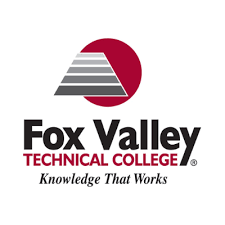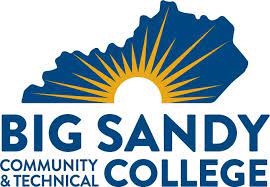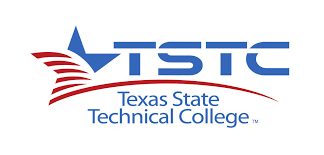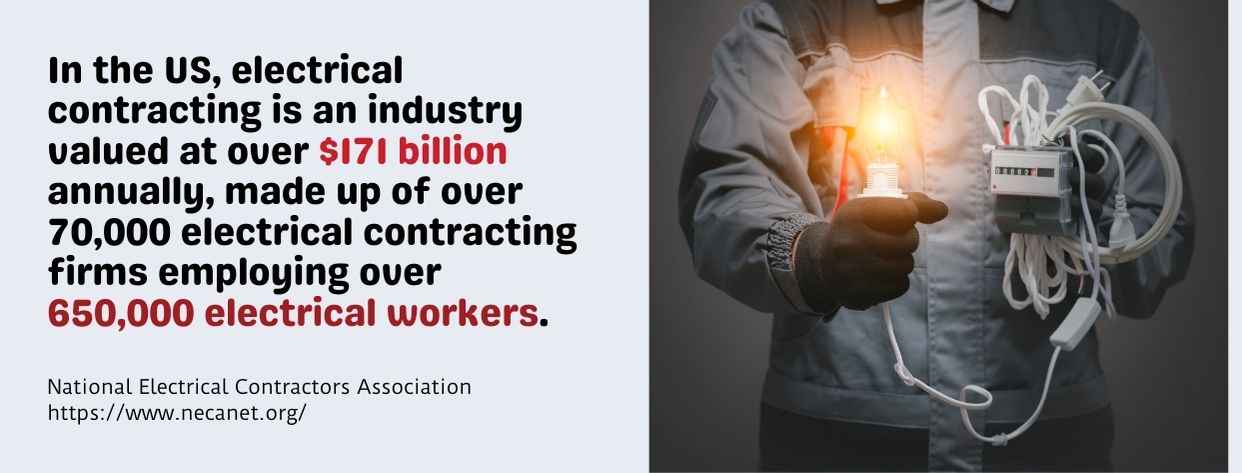Find Your Perfect School
Yes, we enjoy the expertise put forth by an Electrician every day of our lives. With the modern conveniences of today, who can function without electricity? No one can for very long! So, it’s time you become an Electrician!
Electricians are dedicated to maintaining large power plants, small businesses or large corporations, our homes… and everything in between! You can obtain an entry-level position and work your way up to many exciting and lucrative career choices in the industry.
WHAT ELECTRICIANS DO
Master Electricians light up the world! When they are not exercising their superpowers, they are repairing electrical wiring, reading technical diagrams and construction blueprints, adhering to the national electric code, restoring electrical power to powerplants and towers, installing solar power and solar panels, installing electrical fixtures, and much more as they are working on construction sites.
In some instances, Electricians perform electrical work in specialized areas, such as residential repairs or commercial repairs; although most can do both!
Not interested in Electricity? Choose another skilled trade: Highest Paying Jobs With A Trade School Education
Quick Summarization:
Becoming a licensed Electrician is a great career goal. There will always be job opportunities for tradesmen in this field. What would we do without them? As we rely on them for modern conveniences, keep in mind that those who pursue the trade and excel at it… can earn a lucrative living. To get started, you will need a high school diploma to enter one of our suggested trade schools below. Become a licensed Master Electrician today and begin your rewarding career!
9 BEST SCHOOLS FOR AN ELECTRICIAN DEGREE
Ivy Tech Community College of Indiana
(On-Campus) AAS in Electrical Engineering Technology
Every year, many engineers and entrepreneurs are needed to meet demands in electrical engineering and electronics technology. Math, science, and technology lovers may be interested in this associate degree in EET. By earning the EET-AS degree, you’ll have the opportunity to find a great job and continue your studies at IUPUI or another university.
Electrical Engineering Technology programs prepare students for careers in computing, networking, communication, mechanical and electrical power systems, robotics, energy management, and transportation technologies.
Technologists trained in the program are knowledgeable and skilled in implementing electronic designs and performing engineering tasks, including data collection, analysis, interpretation, prototyping, installing, maintaining, and troubleshooting various electrical wiring systems. Upon completion, you can earn a Certified Electronics Technician (CET) certification.
If you want to carry on to a bachelor’s degree, graduates of the Associate of Science (AS) degree will be able to transfer to a four-year institution seamlessly. It is essential to keep in mind that even if you enroll in a Transfer as a Junior program, you will still need to be accepted into the four-year institution you intend to transfer to.
Programs offered:
- Energy Technology
- Electronics and Computer Technology
Do you want to become an Electrician? An AAS degree in Electrical Engineering Technology offered at Ivy Tech Community College of Indiana is vital to work as an electrician engineer or land a stable job in the related field.
Fox Valley Technical College
(On-Campus) Electrician Apprenticeship Program
The electrician provides electrical services to homes, businesses, and industries. As an apprentice, you will learn how to install new wiring, switches, motor controls, breaker boxes, and other fixtures once employed. You’ll gain skills to install equipment used to generate, transform, and distribute electricity by combining training on the job and classroom instruction.
The course also focuses on designing and planning electrical systems in other trades. A combination of paid and unpaid instruction will be involved in this program. This Apprenticeship program as an electrician leads to a well-paid, stable career over many years.
Their seamless transfer of credits makes it easy for you to transfer to another two-year college as well as for you to pursue your bachelor’s degree. They have a comprehensive credit transfer agreement with more than 65 two- and four-year colleges fully accredited by the Higher Learning Commission.
Many Fox Valley Tech students have credits from other colleges and universities that they have already earned while in high school. You may also be credited for career-related skills and knowledge you have already mastered. Upon earning an associate’s degree at Fox Valley Tech, you can apply those credits toward a bachelor’s degree. Or you may use them to transfer to a different two-year program in another college or university.
With this program, you’ll be able to learn and apply AC and DC theories. You’ll also learn to comply with the electrical code. You’ll be trained to install transformers according to operational principles. You can analyze the applications and theory of electric motors and analyze variable speed drives.
Programs offered:
- Maintenance Technician Apprenticeship
- Electrical and Instrumentation Apprenticeship
Some of the career opportunities that will be made available for you after you finish this Electrician Apprenticeship Program by Fox Valley Technical College include having jobs as an electrical systems installers or residential, commercial, or industrial electrician. If you’re ready to become an Electrician, sign up today!
Big Sandy Community and Technical College
(On-Campus) AAS in Electrical Technology
Students interested in entering the electrical technology field for entry-level positions in industry and construction are well suited to the Electrical Technology Program. Students will take both theory and practical courses. Students will earn a degree in Applied Science and Electrical Technology after completing the program in four semesters. Electrical construction, residential electricity, and motor control are among the courses offered.
Students who complete the Electrical Technology Program are prepared to work as various entry-level electricians in industry and construction. The electrical theory is studied in the classroom and applied throughout the program. In two years, if you study full-time, you can attain an associate in applied science degree. You can work as an electrician in different industries, manufacturing sites, maintenance departments, private companies, and healthcare.
Programs offered:
- Air Conditioning Technology
- Engineering and Electronics Technology
Getting an AAS degree in Electrical Technology at Big Sandy Community and Technical College will allow you to amp up your career in any Electrical-related job. You’ll gain specialized training in electrical theories and experience real-world scenarios related to the program.
Mountainland Technical College
(On-Campus) Electrical Apprenticeship Program
As an MTECH Electrical Apprenticeship student, you will be prepared to become a Journeyman Electrician. Electrical apprentices need 576 hours of class time and 8,000 hours of on-the-job training to take the state journeyman exam. Seven hundred twenty hours of accredited study prepare students for state tests and satisfy the State’s educational requirements. As apprentices work alongside experienced electricians on the job, it complements the on-the-job training they receive from their employers.
MTECH does not provide on-the-job training or act as an apprentice sponsor. So as an apprentice, you’ll be responsible for finding employment in any company or institution. The Utah State Division of Occupational & Professional Licensing (DOPL) requires all electricians to register.
The traditional evening classes will be held twice a week during the Fall and Spring semesters, completing approximately four years. MTECH will offer daytime accelerated classes as part of the Electrical Apprenticeship Program. The high demand for apprenticeship electricians has resulted in high school seniors’ eligibility to enroll in daytime classes but not in evening classes because of a high demand from adult apprentice electricians.
Adults employed as electrical apprentices are welcome to attend evening classes, though. Students enrolled in electrical apprenticeships will not enroll in evening classes until the school receives employer information.
You can register for daytime accelerated classes as a current worker or as a senior in high school. The employment requirement does not apply to daytime students; however, an electrical apprentice must be employed before starting the third-year course. Students in the third or fourth year must attend evening classes.
Programs offered:
- Automotive: Electrical and Electronics
- HVAC Apprenticeship
Are you ready to become an Electrician? Jumpstart your career as an electrician today by enrolling in this Electrical Apprenticeship program offered by Mountainland Technical College.
Check this out: The 10 Best Schools For Becoming an HVACR Technician: Degree and Job Info
Texas State Technical College
(On-Campus and Online) Certificate in Electrical Construction
Texas State Technical College students can take advantage of the growing electrical construction industry. More than 30,000 electricians and helpers are working in Texas, which isn’t surprising considering the state ranks first in construction opportunities. This industry can offer skilled jobs that lead to lifetime careers.
In Electrical Construction, you will gain hands-on training in all electrical systems – residential, commercial, and industrial. In addition to electrical theory, you will also learn OSHA regulations and alternative energy technologies. Upon graduation, you’re eligible to work in almost any construction field as an electrical apprentice.
Programs offered:
- HVAC Technology
- Drafting and Design
Spark a new career and become an Electrician. Practice a profession related to electrical technologies. To jumpstart, enroll in this hybrid Certificate in Electrical Construction program at Texas State Technical College.
Ashland Community and Technical College
(On-Campus) AAS in Electrical Technology
A degree in Industrial Electrician is available from Ashland’s Electrical Technology department. Two years are required to complete the program, and several specializations are available. You’ll be able to learn courses such as Residential electricity, Motor Controls, and Voice and data writing.
Students at Ashland are expected to meet high standards. A-C or a better grade is required in all technical electives and technical core courses of the Electrical Technology program. Graduates usually find work in the residential and commercial sectors.
The Electrical Technology Program prepares students for entry-level employment as electricians in various industries and trades. This program is built on learning electrical theory and putting it into practice in the labs. The Associate of Applied Science degree program offers three different specializations.
A wide range of certificates and diplomas are offered to meet specific training needs or enable access to AAS degree specializations. Courses chosen as technical electives must be completed with a grade of C or higher in the technical core. Electricians can be employed in residential or commercial construction, electrical maintenance, or electrical construction.
Students who graduate from the Electrical Technology program are prepared for entry-level jobs in industry and the building trades. Graduates may also transfer their credits to a four-year institution if they become electrical engineers.
Programs offered:
- Electrician Construction
- Motor Controls Electrician
Finish a two-year Associate degree in Electrical Technology at Ashland Community and Technical College to become an electrician (industrial or commercial), or go further pursuing an electrical engineering career track.
Southeast Technical College
(On-Campus) AAS Degree in Electrician
Southeast Technical College has produced top-notch electricians who contribute to residential, commercial, agricultural, and industrial projects. You will install wiring systems, design circuits, read blueprints, and use power tools to accomplish your career goals. As an electrical apprentice, you will be ready to launch your career after two years at STC. Among your other responsibilities are fixing or replacing equipment or wiring, conforming to local/state building codes, providing workers with training in wiring installation and maintenance, and understanding blueprints and diagrams.
There is a bright future for your career as an electrician. According to the Bureau of Labor Statistics, a predicted increase in construction activity will lead to 8% job growth for Electricians through 2029.
Students learn to install and maintain fuses, wiring, and other systems in the construction coursework in Sioux Falls, South Dakota. After completing the program in two years, you will receive 2,000 hours toward certification and enter the Electrician’s apprenticeship program in the third year.
Your daily tasks will involve the use of voltmeters, thermal scanners, ammeters, and cable testers. To locate circuits, outlets, and other equipment, you will also use blueprints and technical wiring diagrams. To diagnose a problem, electricians use a variety of tests and manuals. They then devise and carry out repair measures.
Programs offered:
- HVAC/R Technology
- Mechanical Systems/Plumbing Technology
Get ready to have a job that’s high in demand by completing this AAS degree in Electrician at Southeast Technical College. Become a Licensed Electrician!
Mitchell Technical College
(On-Campus) Electrical Registered Apprenticeship
A Registered Apprenticeship program for electrical engineers is now available through Mitchell Technical Institute’s Division of Advanced Technical Education. The registered apprenticeship program will allow MTI graduates to pursue journey worker status at some point in their electrical careers through a formalized and recognizable structure.
Graduates of the program receive an Apprentice Graduate Certificate from Mitchell Technical Institute and a Journeyworker certificate from the US Department of Labor.
As a recognized sponsor, MTI provides its apprentices with the curriculum they need to become Journeyworker electricians, track and report their hours, and train them on campus if necessary.
At MTI, students who enroll in the full-time Electrical Construction and Maintenance program are considered apprentices. Students will have accumulated 2,000 hours toward the 8,000 hours required to become licensed electricians upon graduation.
Prospective students who would like to become an Electrician are enrolled in the Electrical Registered Apprenticeship program. They must complete 6,000 additional hours of industry work over approximately three years and the required hours of classroom sessions.
Programs offered:
- Natural Gas Technology
- Utility Technology
Enroll in this Electrical Registered Apprenticeship program to earn at Mitchell Technical College to work as a licensed electrician.
Stanly Community College
(On-Campus) Electronics Engineering Technology – Automation and Control
In the Electronics Engineering Technology curriculum, students learn how to design, build, install, test, troubleshoot, repair, and modify a wide variety of electronic components, equipment, and systems, including industrial drives, computer control systems, manufacturing systems, communication systems, and power electronic systems.
The student will acquire skills necessary to carry out entry-level tasks via a broad core of electrical courses, solid-state fundamentals, digital concepts, and microprocessor courses. Analyzing and troubleshooting electronic systems is emphasized, focusing on developing students’ analytical abilities.
In addition to computer literacy, computer-aided design (CAD), data communications, electronic communications systems (telecommunications), microprocessor systems, and industrial control transducers, the course also emphasizes computer-aided design (CAD), data communications, and electronic communications systems (telecommunications).
The EET program also emphasizes online (Internet) experience. Much of the coursework provides students with a hands-on laboratory experience that frequently involves accessing the Internet.
In addition to engineering assistants and electronic technicians, graduates should be qualified to work as field service technicians, maintenance technicians, electronic testers, electronic systems integrators, bench technicians, or production control technicians.
Programs offered:
- Collision Repair & Refinishing Technology
- Welding Technology
Gain electrical theories by getting yourself a degree in Electronics Engineering Technology: Automation and Control at Stanly Community College to become an Electrician.
FREQUENTLY ASKED QUESTIONS
What does a Master Electrician do?
The tasks of a licensed Electrician cover a wide array of job duties depending on your specialty. In general, they install new electrical lines, as well as repair and maintain existing electrical services. This can include lighting, communications, appliance, HVAC/AC systems and other types of control systems, and the like. They focus on inspecting electrical components, replacing parts as necessary, and following all state and local electrical code regulations.
For those focused on new construction, you will need to be proficient in reading blueprints and schematics. In addition, you will need to be familiar with hand tools, testing equipment, power tools, bucket trucks, and much more!
What types of Electricians are there?
Most Master Electricians work for construction companies on job sites, utility companies, in-plant maintenance, or become self-employed working in commercial or residential home installation and repair. However, if you would like to concentrate on a particular field, Electrician careers include:
- New Construction
- Residential Wireman
- Commercial/Industrial Buildings
- Maintenance
- Marine
- Electrical Line Repairer
- Automotive
- Elevator Install Electrician
- Power Line Installer
- HVAC/AC Installer
- Electrical Engineer
- Architect
- Highway Systems
- And, much more!
How do I become an Electrician?
To begin, prospective electrical contractors will need a high school diploma or equivalent. From there, additional training will be required. The best way to become a Master Electrician is to enroll in a vocational school offering a certificate or associate degree program. Electrician programs can be easily found in trade schools in your area, most likely.
Typically, to become an Electrician, you can expect your career to take the following paths:
- First, expect to be an “Apprentice Electrician,”
- Secondly, a “Journeyman Electrician,”
- And then finally, a “Master Electrician.”
Should I work an apprenticeship while learning to be an Electrician?
Yes, most budding Electricians are required to work an apprenticeship lasting up to four to five years or so, depending on your progress. As an electrician apprentice, you will work as an electrician’s assistant, working under the supervision of an experienced Master Electrician until you can work independently.
What is a Journeyman Electrician?
After you have completed an apprenticeship, you will step up to the next level… Journeyman Electrician. In this role, you will be given more responsibility as you should have the skills and on-the-job experience required to work on your own. However, in this capacity, you can still expect to work under the instruction or guidance of a Master Electrician. A Journeyman Electrician does not yet have their electrical license at this stage; although they may have only a Journeyman license.
How much money does an Electrician get paid?
Salaries for a licensed Electrician will vary greatly, depending on your level of expertise, the type of specialization you are in, as well as the area of the country in which you work.
The BLS reports average earnings of $60,240 per year as of May 2022. The highest 10% earned upwards of $102,300 or more per year.
Is there a job demand for Electricians?
The Bureau of Labor Statistics reports a faster than average job growth rate for licensed Electricians. Between 2022 and 2032, the field is expected to grow by 6%, adding 73,500 jobs per year over the next decade. It’s an excellent time to begin your career as an Electrician!
Does a Master Electrician need to be licensed?
Yes, most states have licensing requirements that will mandate you to have a license as a Master Electrician; therefore, complying with state and local codes. Many states differ on the requirements, so check that out!
You will need to pass the test to gain licensure. In addition, you will need to continue your education to stay abreast of the latest technology and state regulations. And, don’t forget… you will need to maintain a valid driver’s license and be able to pass a drug test!
See the National Electrical Contractors Association for more information!
Is being an Electrician a dangerous job?
An Electrician’s job can be a hazardous experience if safety precautions are not followed. Accidents can result in life-altering injuries or fatalities. Many trade schools focus on safety codes while working on electrical lines and equipment, as they should.
Master electricians are not void of serious risks. Accidents can include electrical shocks, burns, falls, sprains, hearing loss, or eye injuries, just to name a few. To reduce injuries, workers must wear protective gear and adhere to all safety regulations.
KEY TAKEAWAYS
Would you like to own your own electrical contracting business? If so, you can begin with a high school diploma and end up with a Master Electrician’s license to do just that!
- As a Master Electrician, you will have many career options available to you. The job growth rate for qualified Electricians is on a “faster than average” track for career opportunities.
- Trade schools often offer certificate programs to help you understand basic scientific concepts; however, to become a licensed Electrician, formal education will help you meet the specific requirements to reach certain levels in the field, such as electrician educational options designed to offer apprenticeship programs. An electrician apprentice can gain valuable experience through on-the-job experience.
- To begin your electrical career, your training will be critical. Your Electrician training will include classroom courses, such as electrical theory, electrical wiring, repairs to electrical equipment, national electric code, mechanical drawing classes, electrical concepts, residential and commercial wiring, and more. Your program may also require extensive training in classroom instruction.
- Not all programs instruct on every aspect of electrical maintenance. So, before signing on… verify that your selected program will focus on your desired specialization.
- This field offers the opportunity to start at the ground level, gain experience as an Apprentice Electrician, become a Journeyman Electrician, and then receive your Master Electrician license. An electrical trade is a great choice!
- When you start working and gain valuable work experience, Master Electricians can earn up to $100,000 or more a year, depending on their position. Continuing education is important to keep up with the innovative technology of today! Good Luck!
Additional Information: The 10 Best Schools For Becoming a Power Plant Operator or Power Distributor and Dispatcher: Degree and Job Info










